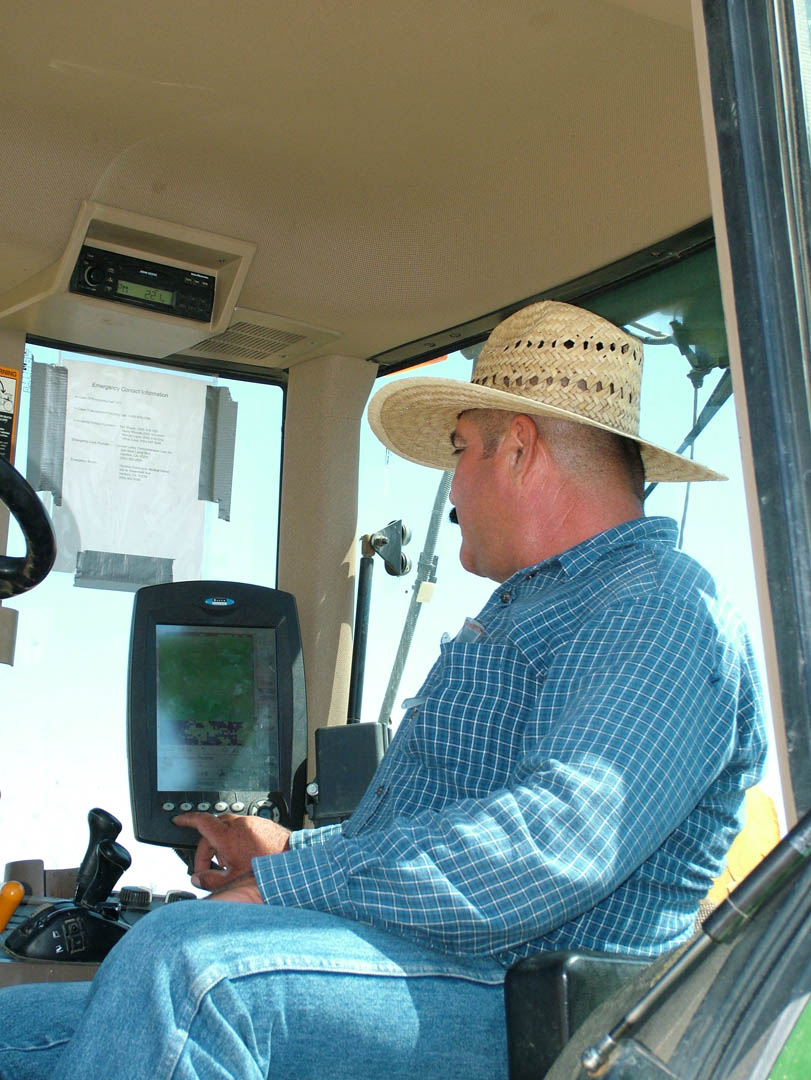
GPS and broadband clash in frequency war
LightSquared — a massive communications company that says it will bring much-needed broadband coverage to rural America — has upset industries, commodity groups, municipalities and government agencies that lean heavily on GPS receivers.When the FCC auctioned off different amounts of the spectrum to run a variety of operations, LightSquared purchased the specific frequency in the auction.GPS frequency and LightSquared frequency are adjacent to each other.
November 3, 2011

With precision agriculture now firmly entrenched on the farm, it is inevitable that anything interfering with the necessary GPS signals won’t be accepted with a smile. At the same time, growers know that rural America would massively benefit from reliable broadband coverage.
You might think those two things — GPS and broadband — would go hand-in-hand rather than be competing interests.
However, as it currently stands in mid-September, LightSquared — a massive communications company that says it will bring much-needed broadband coverage to rural America — has upset industries, commodity groups, municipalities and government agencies that lean heavily on GPS receivers.
The reason: LightSquared’s system uses some of the same frequencies and that causes interference with GPS signals.
In January, the Federal Communications Commission approved LightSquared’s multi-billion dollar proposal to build its network. Then the GPS interference issues surfaced and the FCC and other government entities put the brakes on LightSquared plans and requested more testing.
So far, despite promises of an easy solution, the needed fixes — which government officials say, among other things, are necessary to maintain quick GPS-reliant natural disaster warnings and responses — haven’t emerged.
“LightSquared is a high-speed broadband wireless service provider looking to branch out and begin putting up around 40,000 towers around the country” says R.J. Karney, American Farm Bureau Federation appropriations specialist.
“It’ll be a great resource for rural America in the sense of providing broadband access and better wireless service — it’ll be a great benefit in that capacity.”
However, from an agricultural standpoint, “there is a real concern with that plan. That’s due to the current interference the LightSquared system has on GPS-related equipment since they both use the same frequency. That’s where the main issue comes in — when LightSquared began to build their towers, the GPS industry found interference.”
One of AFBF’s main priorities “is to get broadband deployment to rural America. That will be beneficial for distance learning and education, public safety, tele-medicine, all kinds of assistance for commerce.”
But, “precision agriculture is immensely important to farmers and ranchers. Specifically, precision agriculture helps them to run efficient, economically and environmentally-conscious operations.”
Save Our GPS
The National Cotton Council is of a similar opinion.
“The NCC was made aware of this issue in February of this year when we were asked to join a coalition, Save Our GPS, that includes commodities as well as GPS manufacturers/users including John Deere, Trimble and other manufacturers, along with the Department of Defense and private aviation interests, the Coast Guard and state and local public safety interests that use GPS,” says Bill Norman, NCC Vice President of Technical Services.”
For more on the NCC position, see here (http://www.cotton.org/news/releases/2011/gpsamd.cfm) and here (http://www.cotton.org/news/av/broadcast/110715.cfm).
Initial testing “indicated there would be significant interference with just about every GPS operation,” says Norman. “Some are affected in their accuracy and some are completely knocked off-line.
“There are questions about some of the technical aspects of this. Can there be a filtering device added to the new GPS equipment to alleviate the problem? Can retro-fit filtering reduce the magnitude of this problem for existing units and, if so, what would it cost?
“Our belief is you can’t interfere with the GPS signal. If need be, LightSquared needs to move to a different part of the spectrum.”
AFBF wants to find “some way” for the systems to work together, says Karney. “There’s still the chance for LightSquared to provide broadband services. But it can’t come at the expense of precision agriculture and importance of GPS.”
When the FCC “auctioned off different amounts of the spectrum to run a variety of operations” LightSquared purchased the specific frequency in the auction. The unfortunate thing, says Karney “is that the GPS frequency and LightSquared frequency are adjacent to each other. Picture a rainbow — GPS and LightSquared are both in the yellow section of the rainbow.
“Now, everyone is trying to figure out how to provide a filter to keep the (signals from conflicting) so there’s no interference. Unfortunately, (the attempted fixes show) with these high-powered frequencies there are still interference issues. That’s why we want to insure that GPS receivers run with no problems. Precision agriculture must still be able to run properly.”
Asked about possible remedies, Norman says other than additional testing “there is an appropriations measure — an amendment to the appropriations bill — to prevent the FCC from spending any money to allow” the LightSquared system to come on-line without a GPS fix.
What is GPS worth to farmers?
“You can’t quantify it commodity-by-commodity because so many farmers have multiple commodities,” says Norman. But the current situation with LightSquared “will have significant effects in terms of GPS accuracy, if not availability.”
As for what producers should watch for next in the process, Norman says there is “a continual dialogue taking place between the coalition (Save Our GPS) and the FCC and LightSquared. We’ll see how the responses are sorted out.
“The next issue, I think, is how the FCC will respond to the communications and comments they received” in August. Added to that “are whatever proposals might have been laid out by LightSquared. We’ll be waiting to hear from the FCC on that.”
Meanwhile, LightSquared has put together another proposal “containing solutions they believe may lead to an answer,” says Karney.
“From the AFBF standpoint, we’d like to see that initiative working — but we want the FCC to insure, before LightSquared is allowed to turn their service on, that there is no GPS interference.”
You May Also Like



